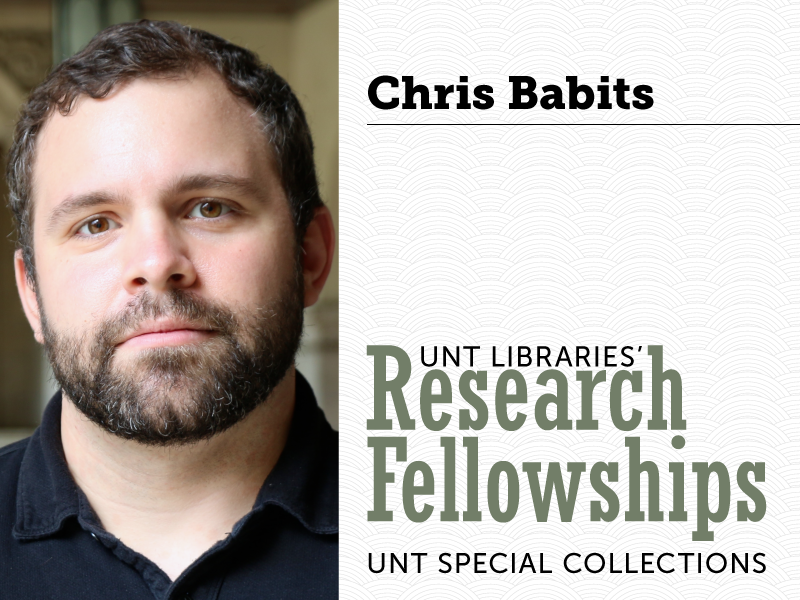The UNT Special Collections 2016 Research Fellowship Awardee - Chris Babits

The University of North Texas Libraries invite applications for the 2016 UNT Special Collections Research Fellowship. Research in special collections is relevant to studies in a variety of disciplines including history, journalism, political science, geography, fine art, art history and American studies. We encourage applicants to think creatively about new uses for special collections. Preference will be given to applicants who demonstrate the greatest potential for publication and the best use of special collections at UNT Libraries.
The UNT Special Collections 2016 Research Fellowship Awardee
Chris Babits
Project Title
To Cure a Sinful Nation: A Cultural and Intellectual History of Conversion Therapy in the United States from the Second World War to the Present Day
Project Description
Conversion therapy, which aims to “cure” men and women of their homosexuality, was a common practice until the psychiatric establishment removed homosexuality from its list of mental disorders in 1973. As it grew more popular in the American South and Southwest, conversion therapy came under political fire for being religious moralizing in disguise. “To Cure a Sinful Nation” is a history of the conversion therapy movement that helps us understand how religion and scientific inquiry intersect as well as the changing norms on gender and sexuality from the early Cold War into post-9/11 America.
Biography
Chris Babits is a Ph.D. student in History at the University of Texas at Austin. His research examines the intersections of religion, psychiatry, and sexuality in twentieth-century America. He earned a Bachelor’s and Master’s in History from Clark University. Chris will spend 2016-2017 conducting dissertation research. In addition to the University of North Texas Special Collections Fellowship, he has been awarded a Columbia University Libraries Research Award, the Albert M. Greenfield Fellowship from the Historical Society of Pennsylvania, and a Southern Baptist Historical Library and Archives’ Lynn E. May Research Study Grant.

